
Part 2: Shifting Our Focus as SEO's - MozCon 2024 Series
10
minute read time
Embracing the New Era of Content and SEO
The landscape of content has undergone a profound transformation in recent years. As SEO strategists, we have traditionally relied on our comprehensive "SEO checklist," methodically following steps to craft content for users and customers. However, as Lily Ray aptly observed, it is imperative that we "redefine the way we view content." This means transcending the conventional tricks and hacks we have long depended upon and instead embracing sustainable, innovative growth strategies that foster unique value and enduring impact.
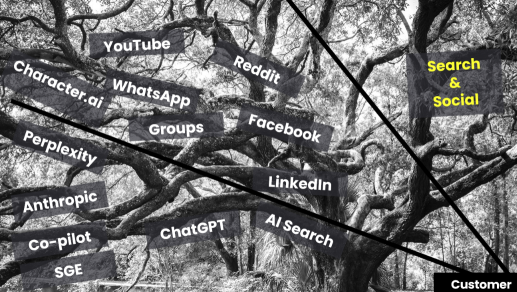
Prioritizing Unique Content Across Diverse Customer Channels
The digital content landscape today demands a shift from the traditional focus on SEO checklists to a more holistic approach. As Amanda Jordan metaphorically stated, "Your website is like a single tree - the internet is an entire forest." This highlights the necessity of looking beyond isolated content creation to embrace a broader marketing ecosystem. Users now seek information across multiple sources, requiring content that is rich in real-world examples and includes strong, unique perspectives. Joel Klettke emphasized the versatility of storytelling, highlighting the importance of repurposing a single story in various formats to reach different audiences across multiple platforms.
“You don’t need 700 pieces of content, you need 700 ways to distribute one piece of content.”
Chima Mmje
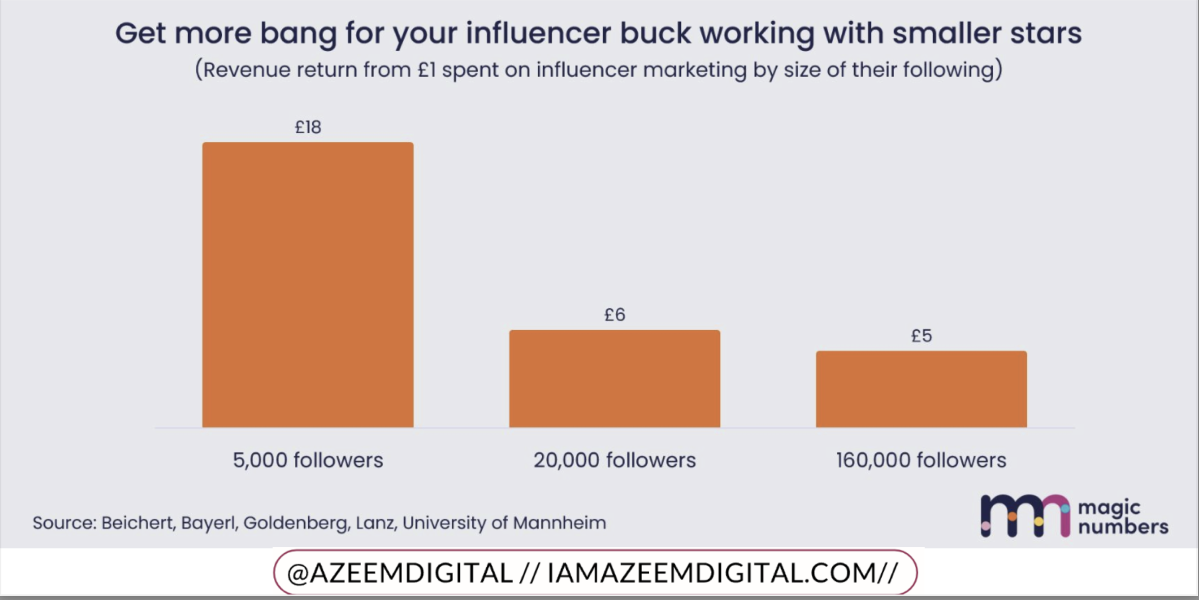
This approach, supported by industry experts like Azeem Ahmad, underscores that a substantial budget is not essential for creating impactful content. Instead, focusing on user-generated content and influencer collaborations, particularly with niche influencers closely aligned with your brand, can yield significant returns.
To thrive in this multifaceted environment, marketers must embrace a multimedia strategy, as noted by Bernard Huangand and Ross Simmonds.
“Cannot control the industry. Can't control the changes. Can’t control the algorithm changing everyday. Can’t control that Google is lying. Can’t control the rise of AI. Can control your time and where you allocate it.”
Ross Simmonds
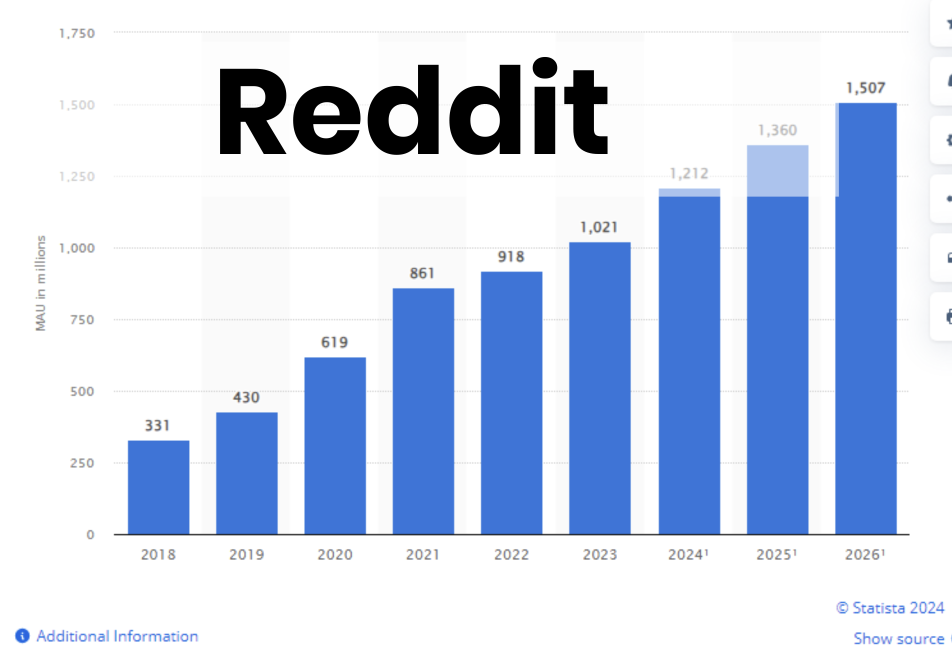
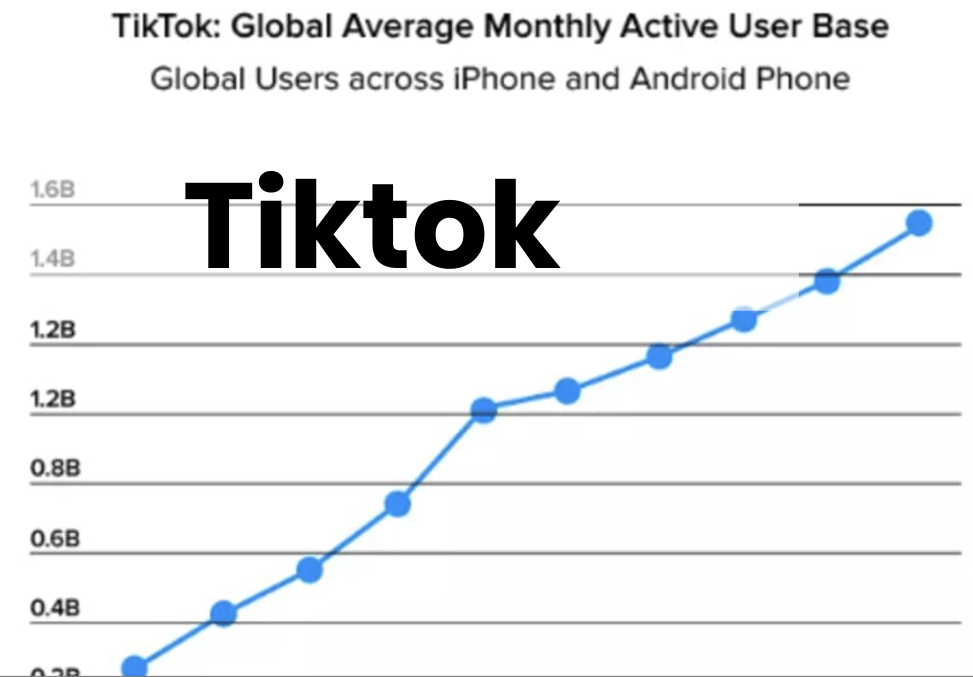
This includes leveraging platforms like YouTube, TikTok, and Reddit, where engaging, first-hand experiences resonate most. By understanding platform-specific dynamics, such as the high retention potential of YouTube Shorts and Instagram Reels, content can be tailored to maximize engagement and reach. Moreover, forums and Reddit pages, with their robust EEAT signals (Experience, Expertise, Authoritativeness, Trustworthiness), provide invaluable insights into audience preferences and behaviors. Cultivating content that resonates across these diverse channels, continually monitoring and refreshing for relevance, and optimizing for SEO, trust, conversion, and ROI are crucial. This strategic diversification ensures that your content remains dynamic and impactful in an ever-evolving digital landscape.
Building Trust and Authority Through Personal Branding
Building trust and authority through personal branding requires more than just a company name or search ranking; it demands authentic storytelling and engagement. As Joel Klettke suggests, "The future of marketing is not an exchange of information, but a transference of trust." Effective personal branding involves defining clear goals, finding your unique voice, and identifying key topics and communities to connect with.
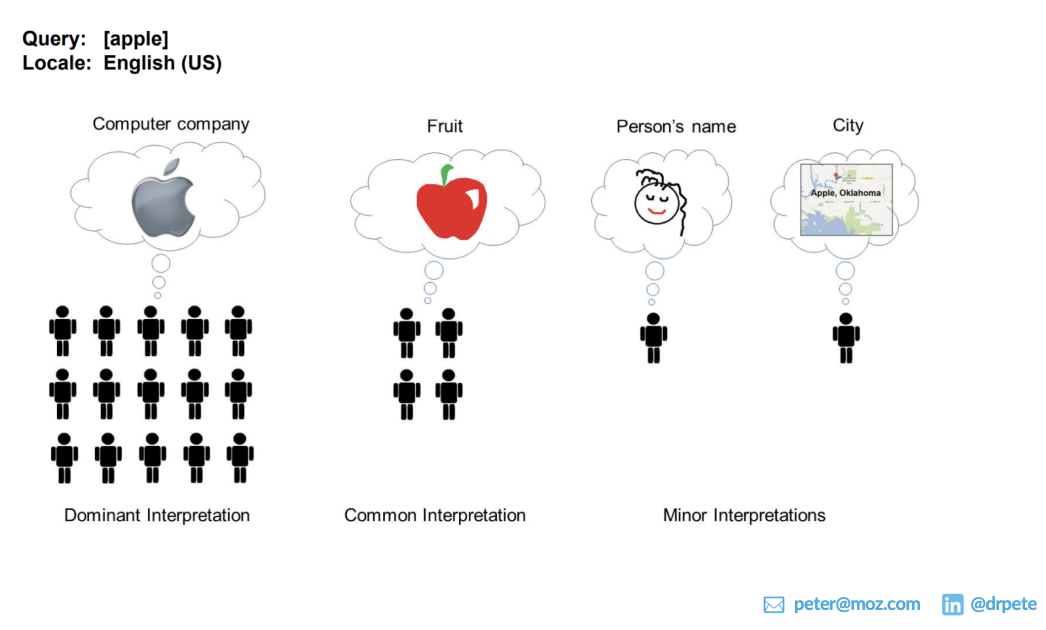
Chima Mmeje emphasizes becoming an authoritative source of truth, while Crystal Carter advocates for participating in real-time conversations rather than after-the-fact reporting. In a world where Google is inherently biased towards established brands (such as Apple - shown on the left), individuals and businesses must leverage platforms like LinkedIn and Twitter for immediate impact, while also considering slower but valuable avenues such as blogging, webinars, and public speaking. Trust is paramount, especially during times of change, and can be built through increased brand visibility, proprietary data, and aligning with trusted sites.
“88% of people believe trust is more important in times of change.”
Bethan Vincent
Ultimately, your reputation, as Amanda Jordan notes, is everything, influencing not just traffic but creating new opportunities from scratch. As marketers, we need to think about what sites our customers trust, and begin to affiliate ourselves with those.
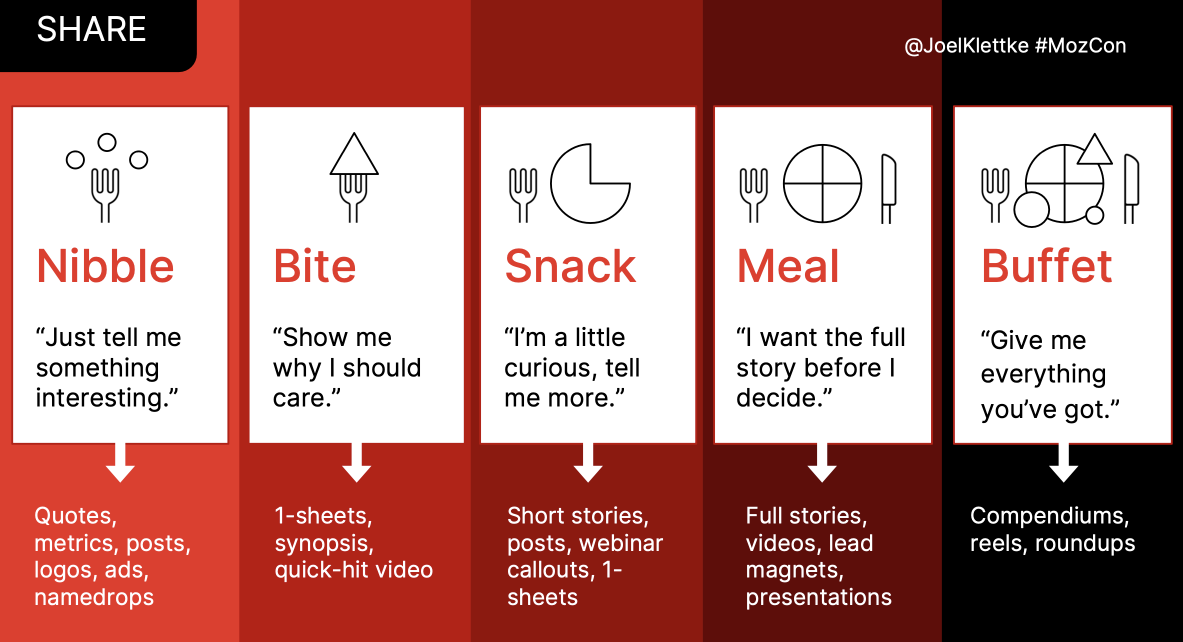
Leveraging connections and understanding user needs is paramount for effective content marketing. Proactive storytelling, as Joel Klettke suggests, involves delivering content tailored to varying levels of audience interest, from a simple "nibble" to a comprehensive "buffet."
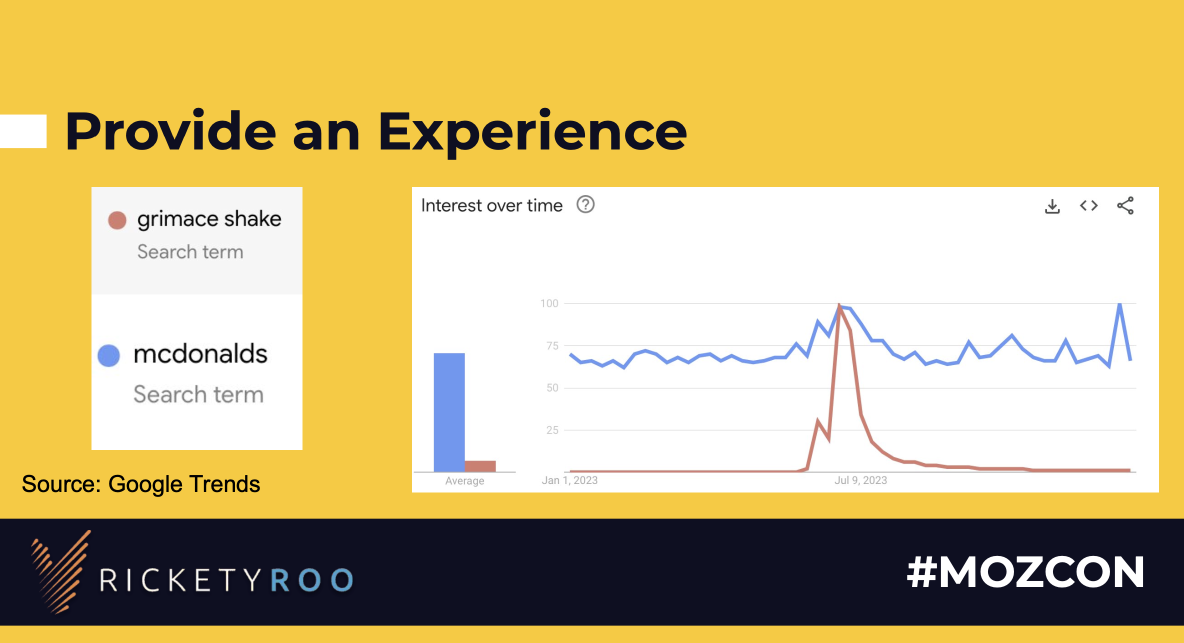
Content should resonate personally, with a focus on individual voices, as emphasized by Chima Mmeje. This approach fosters growth and visibility in the public eye. Crystal Carter and Amanda Jordan advocate for a "people first" strategy, following the customer journey through reviews and location-specific relevance. Successful examples include Nike's local graffiti artist collaboration and McDonald's nostalgic Happy Meal campaign or hilarious Grimace Shake UGC, leveraging emotional connections and nostalgia to boost engagement and sales. Talia Wolf notes that understanding why people buy, rather than just what they buy, is crucial. Instead of including a “Shop Now CTA” or facts about the product on the Home page, front and center, shift your focus onto the customer, and how you will help or benefit them.
“Users are 8x more likely to buy a product with a higher price when there is a personal value.”
Talia Wolf
By integrating emotions into copy and design, and consistently optimizing content, brands can significantly increase conversions and customer loyalty. Ultimately, content marketing thrives on generosity and genuine human connection, turning one-time visitors into life long customers.
Training AI for Our Advantage
Training AI for an SEO's advantage involves understanding how to harness its strengths and mitigate its weaknesses. SEO professionals must collaborate with AI, recognizing its role as an idea generator rather than a content creator. Effective training includes posting content on various platforms like Reddit and social media, rather than just your website alone, to enhance AI's information crawling capabilities. AI should not be seen as a substitute for traditional SEO tools, as it lacks accurate data on metrics like monthly search volumes or keyword difficulty scores. For example, when Lily Ray asked AI for keyword search volumes, the results were inaccurate compared to trusted tools like Moz.
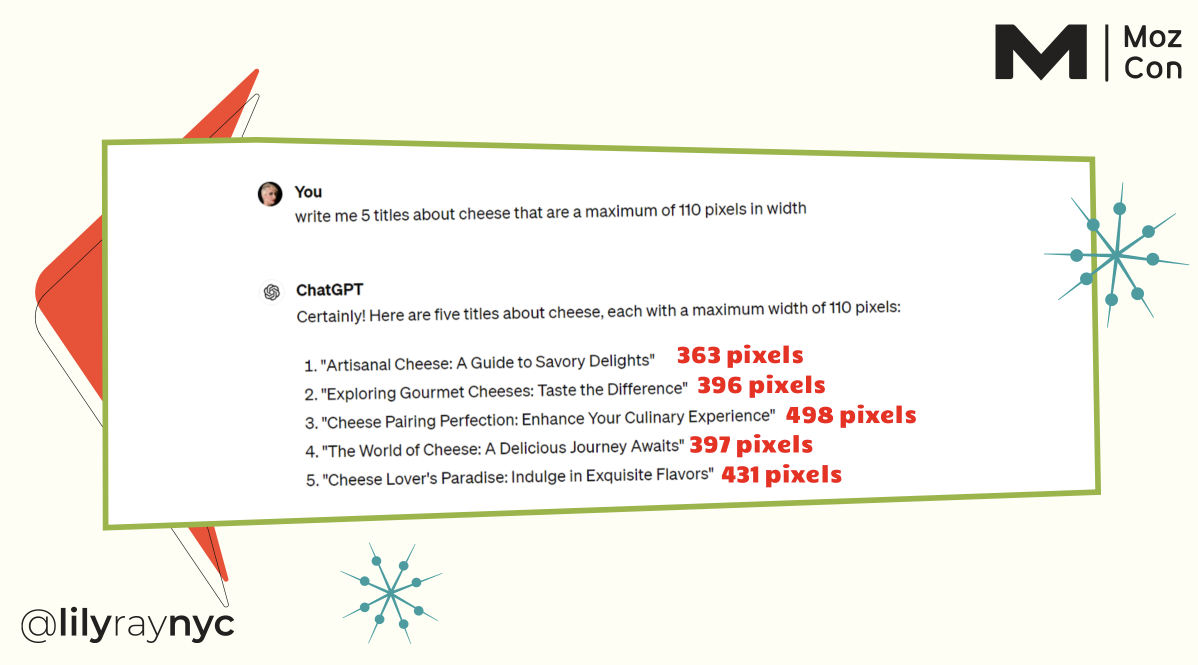
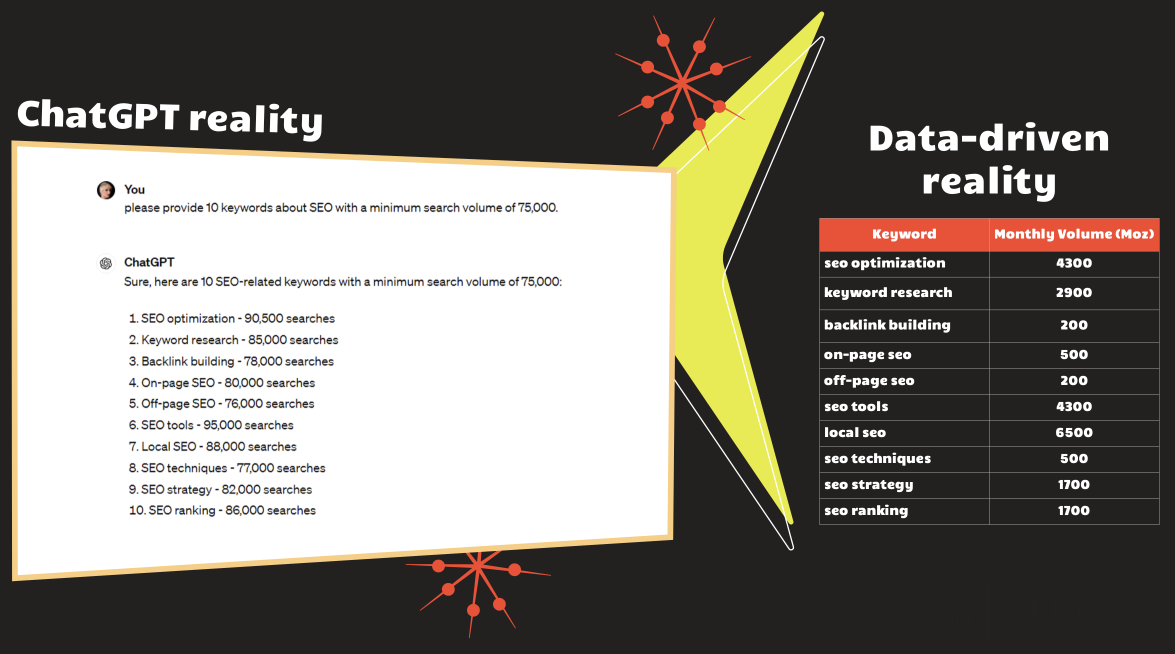

Andy Crestodina recommends prioritizing the creation of high-quality content over merely trying to evade detection of AI-generated material. This approach will help circumvent the "AI-generated content will be penalized" rule. Strategies for leveraging AI include producing deep content, original research, engaging videos, and press releases, while maintaining a broad digital presence.
China Mmje stated throughout her presentation that the correct way to train ChatGPT is to feed it seed content, then tell it what you like about the seed content, provide a structure you want it to follow, give writing guidelines, provide context, refine until you hit gold, and THEN use bits and pieces of generated text to write social content. Staying skeptical and using effective prompt engineering techniques, such as clear task explanations and audience context, can enhance the results and boost audience growth for us all.
“Stay skeptical - it will serve you well.”
Britney Muller
Reporting
SEO reporting is inherently imperfect, increasingly hindered by factors like ad blockers, cookie consent, and privacy-focused browsers. Dana DiTomaso had many incredible points on this topic throughout her MozCon presentation, honing in on the fact that with 52% of Americans and 66% of advertisers using ad blockers, analytics accuracy is declining. Users often appear as direct traffic due to URL manipulation, while SEO tools, despite their utility, require contextual interpretation. For instance, multiple H2 tags may be flagged as an issue, though they may not necessarily impact SEO. Over-reliance on the same tools can lead to homogenous websites and limit differentiation. The true missing ingredient in SEO reporting is critical thinking—understanding the website's purpose and revenue model is crucial, rather than focusing solely on vanity metrics.
Strategic SEO reporting involves understanding the target audience and the specific type of website, as different sites are impacted variably by Google algorithm updates. For example, Lily Ray explained that at the moment, health, news, media, and product review sites face challenges with organic rankings and traffic, while e-commerce, shopping, and forums are currently advantaged, being boosted within the SERP. Effective communication with clients about these nuances builds trust. Proactive measures, such as pre-emptively informing clients about updates or potential impacts, are vital.
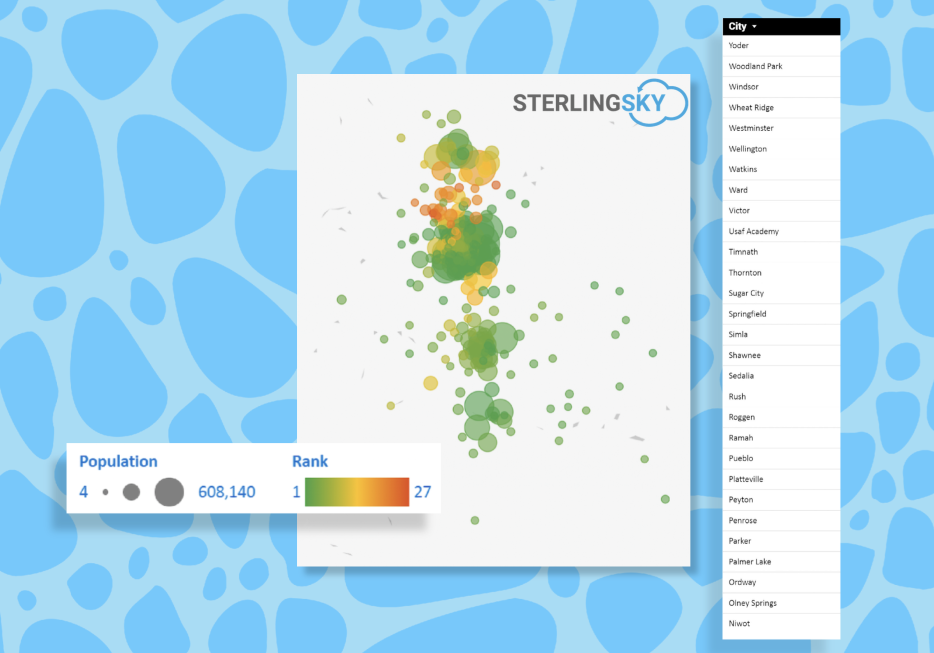
Speakers such as Joy Hawkins and marketing experts like Noah Learner expanded on new ways to enhance the styles of our current reporting, creating heatmaps for clients to show where they currently don't rank, and then down the line showing improvement at an aggregate scale, making it inherently easier for the client to visualize and understand the gains or losses occurring. Travis Tallent dove into the idea of automating repetitive tasks, saving time and allowing teams to focus on impactful issues, guided by the SOAR framework: Streamline the basics, Orchestrate teams, Automate monotony, and Reposition strategies. Dana presented a series of insightful slides, with visuals that showcased whole numbers, percentages, charts, and line graphs. These elements underscored the essential point that our marketing reports should be meticulously crafted to benefit clients, ensuring they are not only visually appealing but also easily comprehensible.
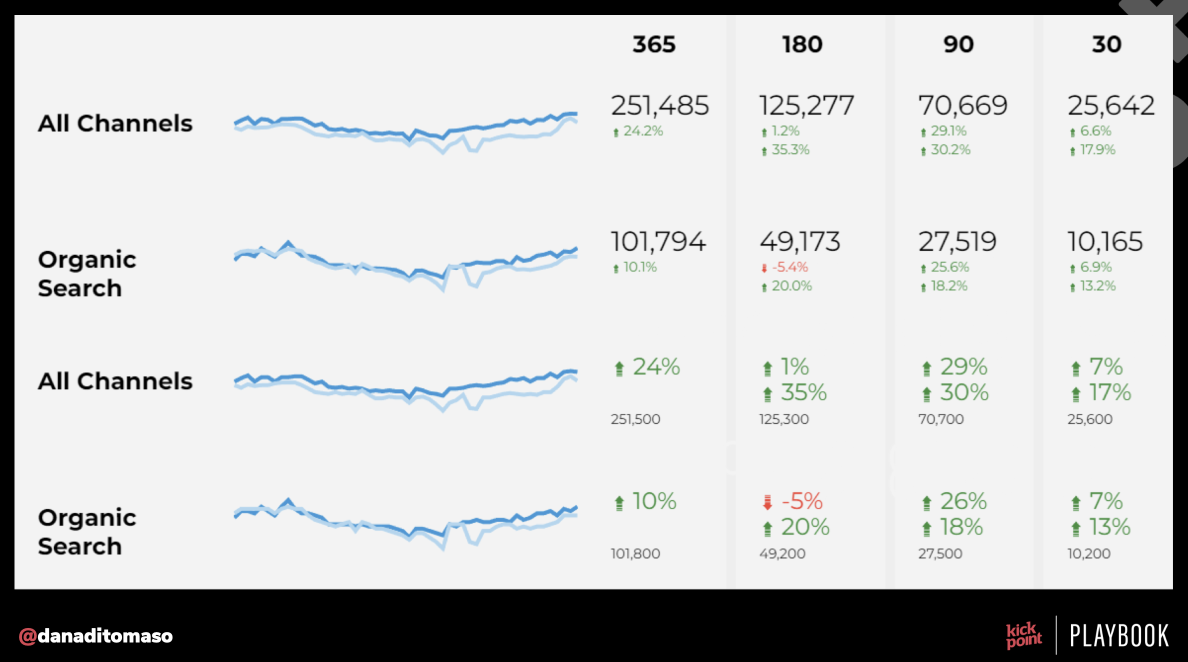
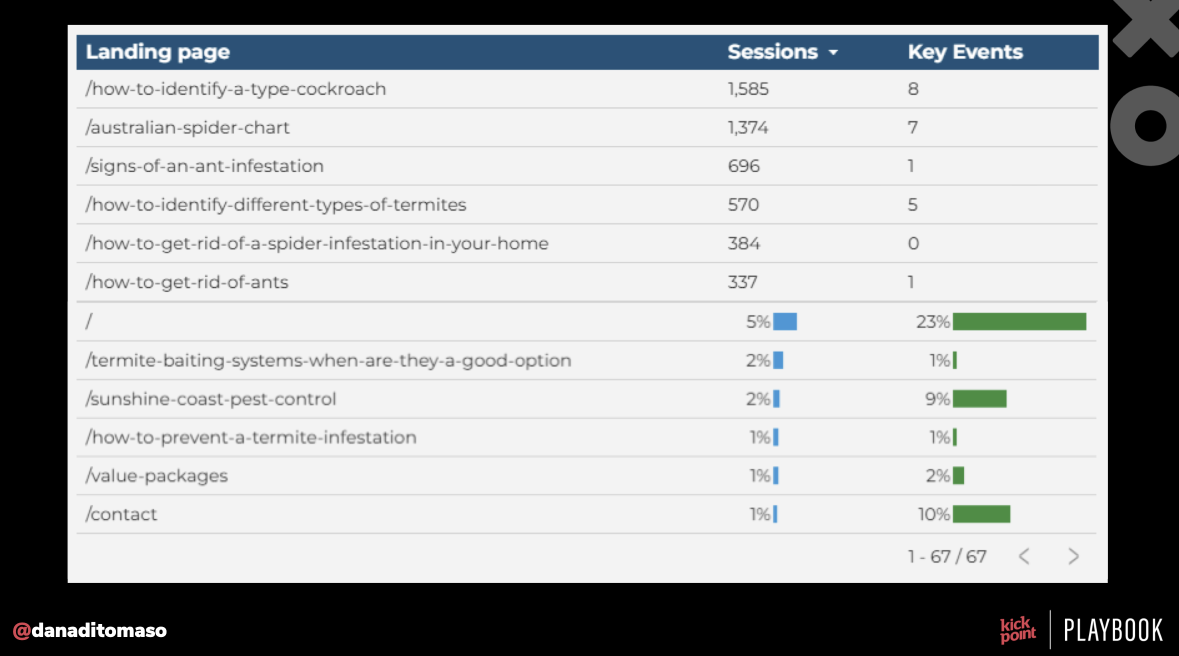
As Bethan Vincent noted, future metrics of importance will shift towards engagement rates, returning sessions, and CTR, emphasizing meaningful data over the mindless gathering of big data, without any conceptual framework for organizing and understanding it.
“Data is evidence not truth.”
Bethan Vincent
To read more about the Current State of SEO, visit Part 1 of our MozCon blog, written by Atypic's Junior Digital Marketing Specialist Jack Johnson.
Stay tuned for Part 3 of our MozCon series, written by Atypic's Digital Marketing Specialist Madison Ware, which will dive into User Behavior.



